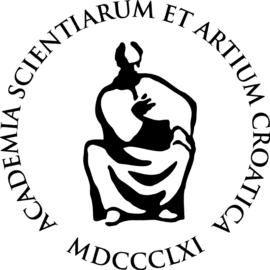Ovid and Latin Marulić
Autor institution: Hrvatska akademija znanosti i umjetnosti i Sveučilište u Zagrebu
Abstract:
A philologist who, twenty years ago, had been tasked to describe Marulić’s relationship to Ovid on the basis of available printed sources, would have been able to rely only on a few hard facts. The first source was the enthusiastic mention of Ovid as one of the three canonical Roman elegists in a letter to Juraj Šižgorić: it is a text included in Šižgorić’s collection of poetry published in 1477, but which was written eleven or twelve years previously, that is, in Marulić’s adolescent years, and is his first text published in print. It is followed only by arguments ex silentio. In De Institutione (Institution) (1507), the whole classical poetic heritage is programmatically declined (Instit. II,5) and, in his second moralist bestseller, Evangelistarium (Gospel Book) (1516), this is formulated even more intensely and elaborately (Evang. I,9; I,24; III,7; VII,33). What is more, not a single title of Ovid’s work appears in the last will and testament inventory lists of Marulić’s library.
When, in the mid-1990s in Glasgow, 600 of until then unknown Marulić’s verses were discovered and then published in an annotated bilingual edition (1999), it became clear that Marulić’s almost half-century long silence on Ovid required an explanation. Namely, as is visible from the commentaries, almost 250 verses, created from his early youth in school to the end of his life, carry the trace of direct or indirect connection to Ovid, be they lexical choice or versifying solution. This includes all of Ovid’s titles, including the ones that modern philology deems apocryphal: Fasti (Fasti), Heroides (Heroides), Cures for Love (Remedia amoris), The Art of Love (Ars amatoria), The Amores (Amores), Metamorphoses (Metamorphoses), Ex Ponto (Epistulae ex Ponto), Tristia (Tristia); Ibis [Ibis], Walnut Tree [Nux]. The connections to Metamorphoses are the most numerous ones – more than one fifth of references – but are closely followed by erotica Ovidiana: The Art of Love and The Amores.
As the publication of Marulić’s Repertorium (Repertory) (1998-2000) has shown, the only text of Ovid’s that Marulić confirmed, through excerpts, to have read carefully are the Metamorphoses. For the rest of Ovid’s opus, one needs to look into Marulić’s texts. In this sense, Marulić’s late, and surely the most ambitious poetic endeavor, the epic Davidias (Davidiad), leads to precious conclusions about Ovid’s formative role in Marulić’s Latin poetry. Ovid and Latin Marulić


